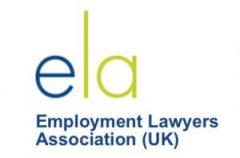A Shareholder Agreement is a private agreement between shareholders, regulating the relationship between the shareholders and how the company is governed. This can impact how certain key decisions will be made in a variety of scenarios.
The majority of Shareholders’ Agreements will hopefully spend most of their life in a filing cabinet after drafting. However, they should not be overlooked as key commercial documents for anyone setting up or investing in a limited company. Their clear and concise terms and processes give much-needed protection and transparency to shareholders if a dispute arises or an unexpected event such as divorce or death occurs, and the issue of what happens to shares arises.
Without Shareholder Agreements, shareholders may find themselves embroiled in costly litigation or grind to a halt altogether, being bound by rules and regulations determined by the Company’s Articles of Association – which may not be appropriate to the specific relationship between the shareholders.
Death of a Shareholder
The death of a shareholder can cause a great deal of disruption and uncertainty in a company and without a Shareholder Agreement in place, the transfer of a deceased shareholder’s shares may be lengthy and complicated to achieve.
Shareholders’ Agreements can include a several specific and bespoke provisions in relation to a deceased shareholders’ shares, which enable existing shareholders to determine the movement of shares in specific circumstances, notwithstanding the general rules laid down by the Articles of Association. Pre-emption rights offer the surviving shareholders a right of first refusal to buy the deceased shareholder’s shares. Conversely, permitted transfers allow shares only to be transferred directly on death to a restricted group of individuals (typically family members) thereby avoiding the pre-emption rights provisions. These are the types of provisions which can be included in shareholder agreements, especially for unique circumstances.
Compulsory transfers can force the shares to be sold upon death allowing the company to buy back the shares or sell to existing shareholders or other specified individuals. Compulsory transfers could mean the deceased shareholder’s shares will be offered to the surviving shareholders and if they decline, the shares can be offered to others. A Shareholder’s Agreement gives you flexibility as to appropriate arrangements. Cross-option agreements work by enabling each shareholder to grant the right to the other shareholders to buy their shares upon their death. It also gives the personal representatives the right to require the other shareholders to buy the deceased’s shares. Cross-option agreements can also be drafted so the company purchases the deceased’s shares rather than the other shareholders.
Divorce
It is not uncommon for company shares to be a point of dispute between spouses during the divorce process. A compulsory transfer provision within a company’s Shareholders Agreement may deter a court from making share transfer orders on divorce as it would raise concerns about implementation and enforcement. Without such provisions, a company is left wide open to a plethora of issues.
Shareholder Leaving a Company
A Shareholders’ Agreement can include various options for shareholders if another shareholder wishes to sell their shares, e.g. if they wish to leave the company. For example, further pre-emption rights. If the existing shareholders do not take up their right to purchase such shares, provisions in the agreement can prevent a transfer taking place without shareholder approval. Such provisions can help prevent shares from falling into the wrong hands. Shareholder Agreements can also apply different rules to shareholders leaving as either a good or bad leaver.
Shareholder Agreements for 50/50 Companies
Shareholder Agreements are particularly important for companies with only two shareholders where each owns 50% of the share capital and they are the only directors of the company. Such companies are known as “deadlock companies” because if the shareholders have a dispute which they cannot resolve, neither has a sufficient shareholding to push through the decisions. This has the potential to create huge difficulties and can bring the company to a standstill. Such issues can be avoided if the parties enter into a Shareholders’ Agreement containing well drafted provisions setting out a process to be followed if such a deadlock occurs. This is by far easier and cheaper than the costs of engaging lawyers to unlock the stalemate or having to take the matter to court for resolution.
Majority or Minority Shareholder Rights
Shareholders’ Agreements can be used to protect minority, majority and equal shareholders alike. An agreement can include “drag along rights” which are rights for majority shareholders to accept an offer to buy their shares, and which compel the remaining minority shareholders to accept such an offer. The opposite of this is the inclusion of “tag along rights” which enable minority shareholders to compel majority shareholders who wish to sell their shares to procure an offer for the minority shares as well.
How We Can Help
It is always necessary to consider the Shareholder Agreement as a whole to ensure it strikes a balance between being fair to shareholders without reducing the value of a shareholding or having a detrimental effect on the trading of the company.
If you are interested in having a Shareholders’ Agreement drawn up please contact Sanjay Soni in our Commercial team on E: S.Soni@thpsolicitors.co.uk or T: 01491 570909









